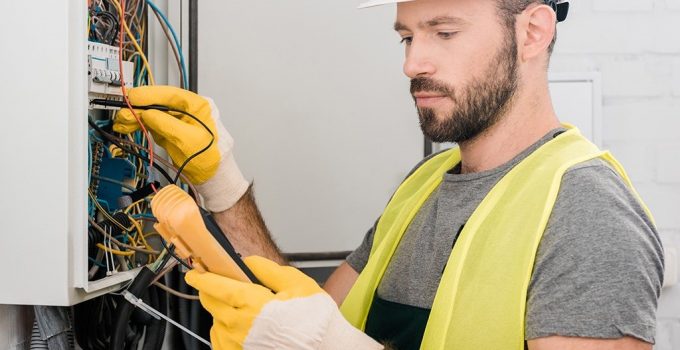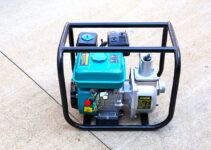There are a lot of things you can do around the house. You can DIY pretty much anything if you have the necessary tools and knowledge. However, just because you can do it doesn’t mean that you should do it. The DIY trend has been popularized by various home improvement shows that have been airing on TV in recent years. Don’t get us wrong – we have nothing against DIY, on the contrary, we encourage people to get handy and do something on their own.
However, where do we draw the line? Building the cupboards for your kitchen and making a dining table in your shed seems pretty cool, but, should you do something as delicate and potentially dangerous as electrical wiring?
Well, in all honesty, there’s no single best answer to this question. If where you live is legal to do your own electrical wiring and you know what you’re doing, then by all means – go for it. However, even if you do know what you’re doing, you have to understand the advantages and disadvantages of a project like that.
Now, we’re not going to tell you that you should leave this job to professionals if you’re confident in your abilities and you have all the necessary tools. However, we are going to point out to your all the pros and cons of a DIY electrical project, so you’re absolutely certain what you’re getting into.
On that note – let’s get started.
Pros Of Doing Your Own Electrical Wiring
Let’s start by naming a few of the advantages of attempting to handle this all by yourself.
1. Cost-Efficiency
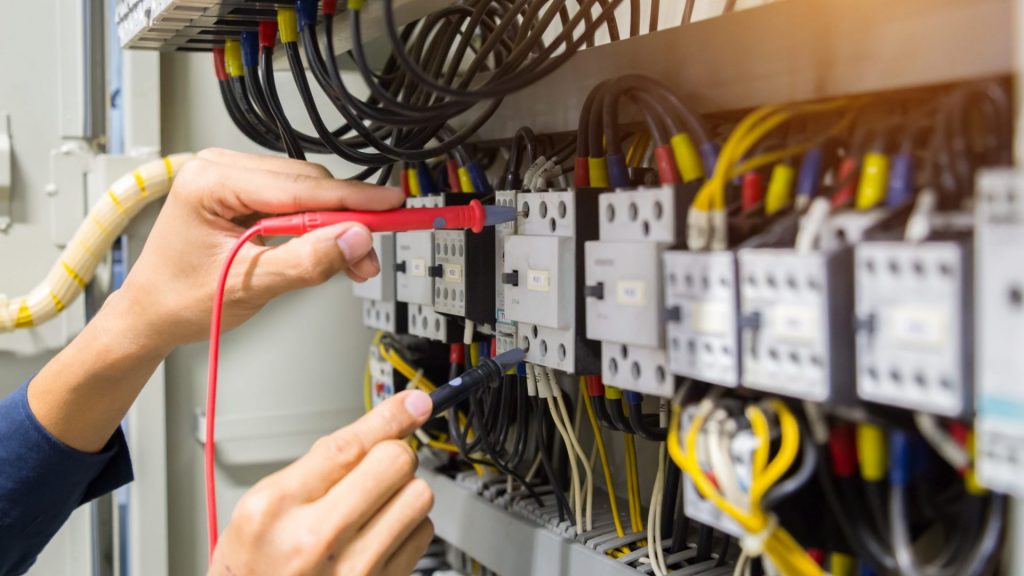
Source: coynecollege.edu
The most obvious advantage of DIY-ing the electrical wiring is the cost of the whole project. It’s not a secret that hiring a licensed electrician isn’t cheap. In some cases, you can even say that it is expensive. Naturally, you have the option to choose who you’re going to hire and that’s going to affect the overall cost of the project, but you’ll still have to pay some amount. Also, most electricians charge by the hour, not a fixed fee. So, if there’s a lot of work to be done, hiring a licensed electrician can be quite expensive.
On the other hand, if you’re doing it all by yourself, the only things you’ll have to pay for are the materials you’ll need.
2. Flexible Schedule
More often than not, installing electrical wiring takes some time – time you might not have at the moment. When you hire an electrician, you set a date and time and that’s it – the job has to be done by the deadline and it has to start upon the agreed date. In case something happens, you’ll have to cancel and that’s probably going to cost you extra, which means, if you don’t want to spend even more money, you’ll have to make it work.
On the other hand, if you’re the one getting your hands dirty – you can do it any time you please. You can do an hour today, six hours tomorrow and then finish it all up the following week. It’s your time and you can do with it as you please. You can work whenever you want and if something comes up and you’re not available for work – nobody cares, it’s all good.
3. Satisfaction
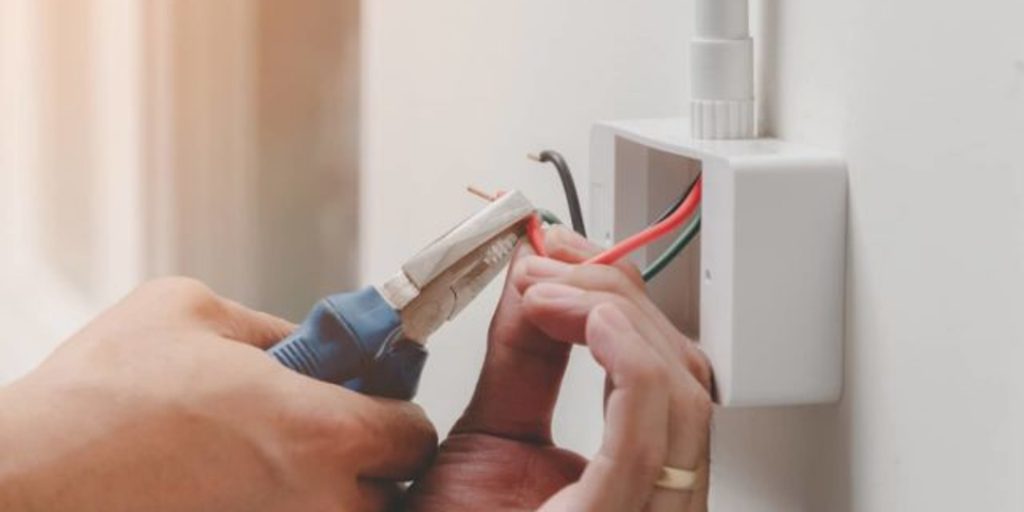
Source: mistersparky.com
Finally, not a lot of things top the feeling of superiority and satisfaction over a job-well-done. The happiness you experience after you finish a tough job is something that can’t be bought. If you enjoy that feeling, well, then you might have to roll up your sleeves and get to work. But not before you read the rest of this article and see what we have to say next…
Cons Of Doing Your Own Electrical Wiring
Now, there will be some drawbacks – be sure of it. Here are a few…
1. Lack Of Experience
To be great at something you need years of training and experience. Now, we’re not saying you don’t know what you’re doing, however, we are saying that you’re most likely not as good or as experienced as a professional, licensed electrician. Those guys have been doing this job for years. They’ve done it on numerous occasions – day in and day out.
Experience matters in this job and you probably don’t have enough of it. You probably won’t know what to do if something goes wrong. A professional on the other hand – will. They’ve gone through it all and they’ve encountered all kinds of problems and they’ve learned how to handle them.
2. It’s Dangerous
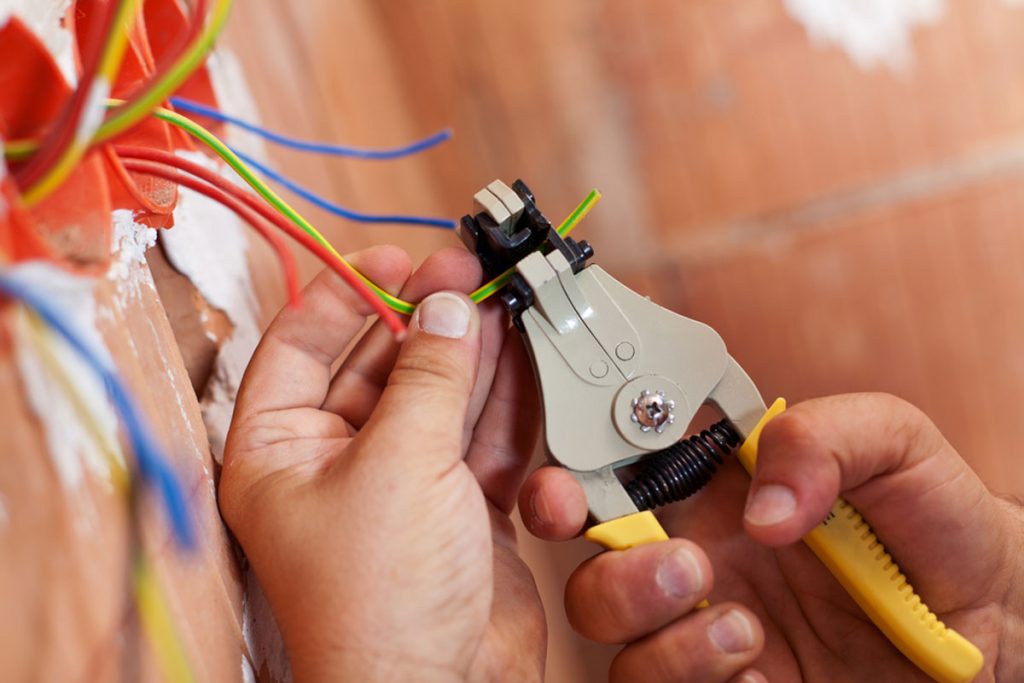
Source: homeguide.com
There’s no room for debate here – playing around with electricity is dangerous. Now, installing electrical wiring might not pose any immediate danger since nothing’s hooked up to the power line at that stage, however, according to honoluluelectrical.com, you have to think long-term.
If you’ve made an error or did a sub-par job, that can lead to problems in the near or distant future. Unfortunately, when these kinds of accidents happen – someone usually gets hurt either physically, mentally or financially. In case you didn’t know – poor wiring is the second most common cause of household fires. So, keep that in mind.
3. No Warranty
In most cases, when you hire a professional to do this kind of thing for you – you get a warranty. That way, in case something happens, you know you’re partially or fully covered and you won’t have to spend too much money on future repairs.
When you DIY it – that’s not an option.
4. It’s Stressful And Time-Consuming
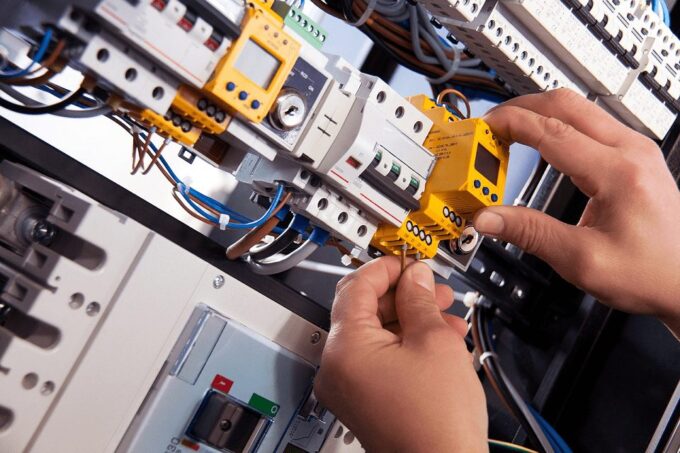
Source: edwardbeaman.com
By no means is this an easy job. Quite the contrary, you’re dealing with an extremely delicate job and you have to be fully committed and make sure everything’s done right, otherwise, you might end up in a lot of trouble.
In addition to that, these things could go on for a day or even weeks. Sure, you’re doing it on your own time, but, what if you have to hurry? What you’re going to do then?
Final Words
Now, we can’t tell you, should or shouldn’t you do it – that’s a decision you have to make. However, we took it upon ourselves to present you with both pros and cons of DIY-ing electrical wiring so you can decide which route you’re going to take.

